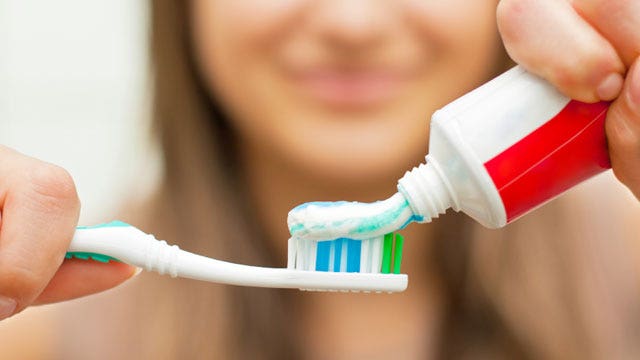How clean is your toothbrush?
Did you know there are 10 billion microbes living on your toothbrush at any given time? Dr. Gerry Curtola gives tips to avoid the most common toothbrush hygiene mistakes
10 billion: That’s how many microbes live on your toothbrush at any given time.
“Toothbrushes can act as a lightning rod for bacteria, viruses and even what we call fungi or mold and mildew,” Dr. Gerry Curatola, founder of Rejuvenation Dentistry and author of the book Smile For Life, Rejuvenation Dentistry and the Art of Wellness, told FoxNews.com. “The types of bacteria…can range anywhere from the bacteria in the mouth that cause tooth decay and gum disease, to strep bacteria to E. coli.”
Check out these five hygiene mistakes you’re probably making when it comes to your toothbrush.
1. You keep your toothbrush within 6 feet of a toilet
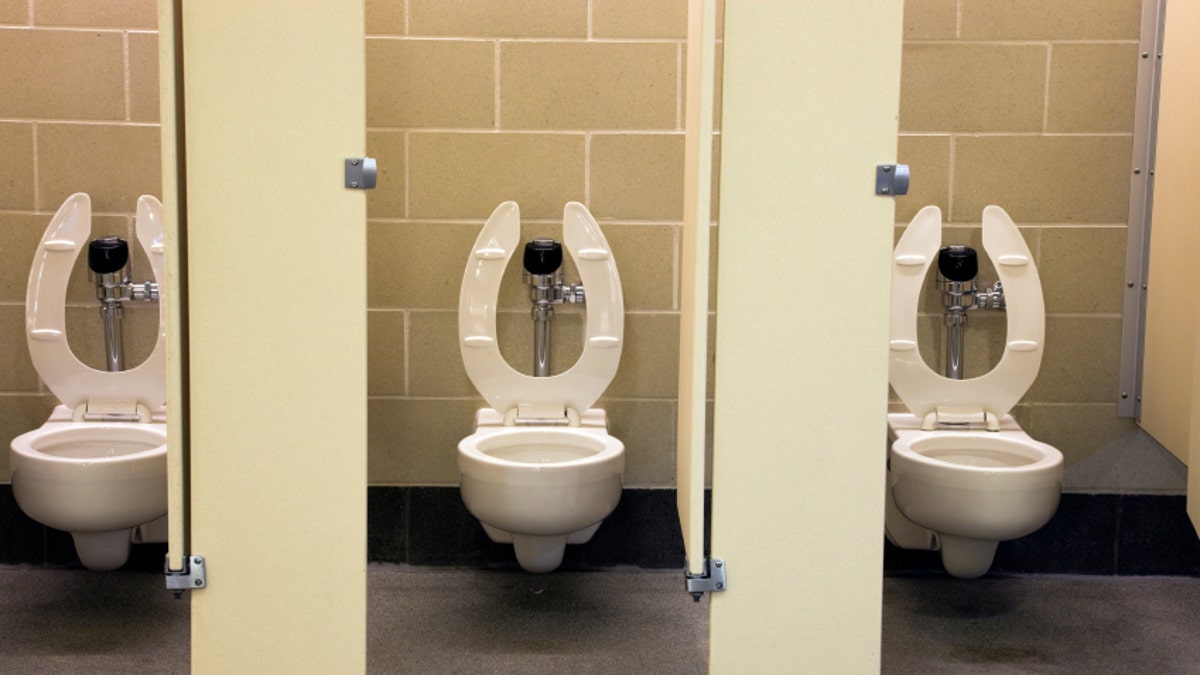
(Copy Rights by Henryk Sadura)
Because most people store their brushes in the bathroom, it’s easy for them to become infested with fecal matter and other microbes you wouldn’t want in your mouth. If you’re keeping your toothbrush within six feet of a toilet, that’s too close, according to Curatola.
“People don’t realize there can be more bacteria on a toothbrush than on a toilet seat,” Curatola said.
2. You store your brush in a plastic holder
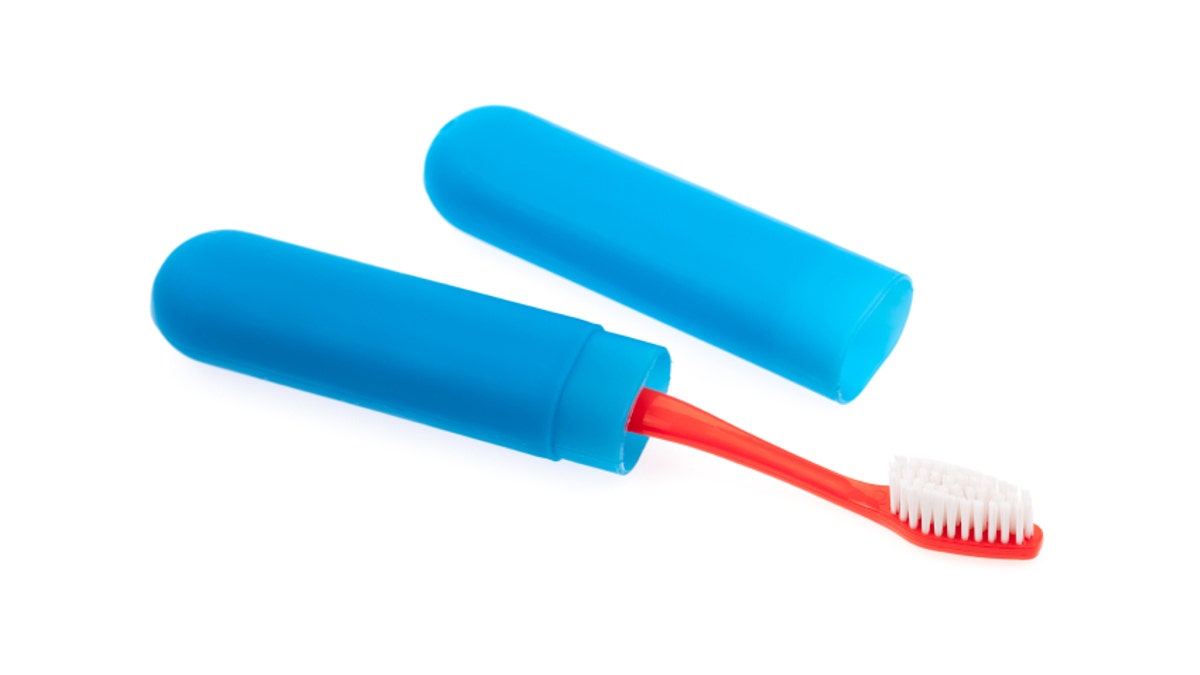
The way you store your toothbrush in between cleanings can affect how many germs infest your bristles. Keeping your brush encased in a plastic container is one of the most dangerous methods of storage, according to Curatola.
“Putting a plastic cap toothbrush cover on is a problem because those act like petri dishes and grow viruses and bacteria inside them,” Curatola said. “The CDC in Atlanta has advised against plastic cases for toothbrushes and for mouth guards and things like that.”
Unfortunately, leaving your brush upright in a toothbrush holder or cup can also leave it exposed to airborne microbes or germs. Instead, Curatola recommends investing in a fabric toothbrush shield, which can help wick away saliva and moisture from a brush, while also acting as a barrier against germs.
3. You microwave your toothbrush to disinfect it
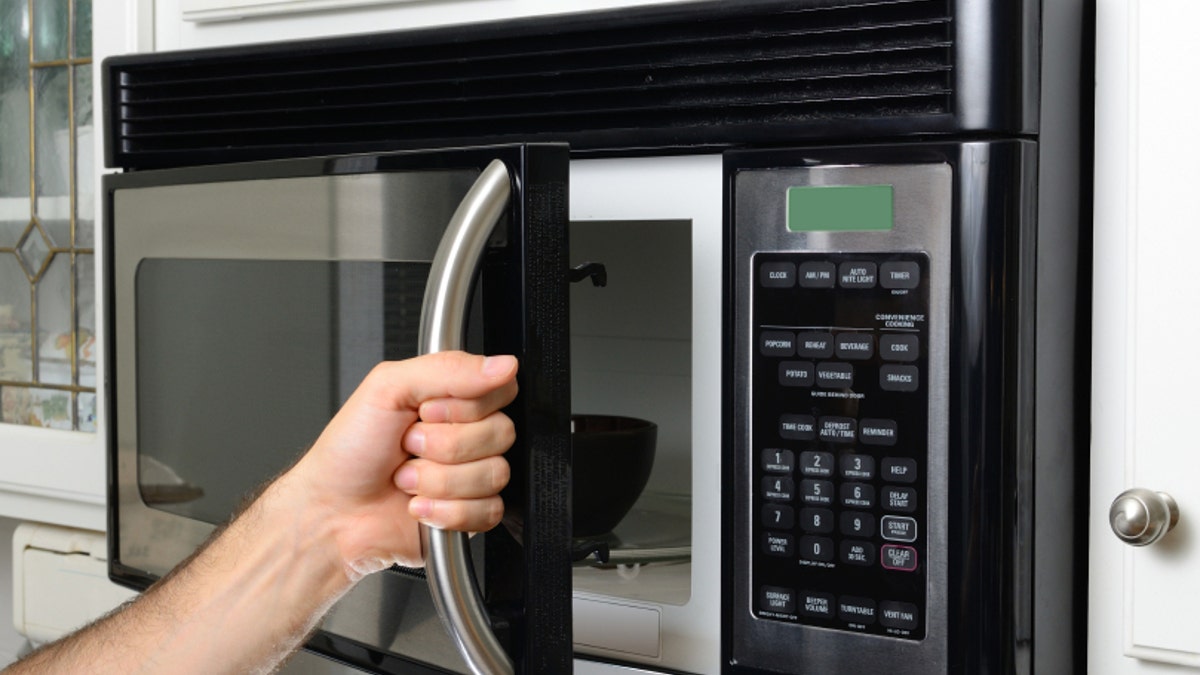
opeing a microwave door (© Sean Pavone 2012 All RIghts Reserved)
Curatola said one of the worst mistakes a person can make when it comes to toothbrush hygiene is microwaving a brush to kill germs.
“They think they are sterilizing it, but they heat the plastic – most toothbrushes are made of plastic, silicone and nylon – and a microwave will denature and damage those things,” Curatola said. “…This causes the nylon bristles to break down.”
Curatola warned that microwaving a plastic toothbrush can put people at risk for exposure to bisphenol-A (BPA), a chemical found in many types of plastic that has been linked to a wide variety of ill health effects, including infertility and various types of cancer.
Instead, Curatola recommends simply rinsing a dirty toothbrush with lukewarm water and a small amount of soap, and then covering it with a fabric shield to prevent re-infestation. He also recommends buying a new toothbrush at least four times a year.
4. You think toothpaste disinfects your brush
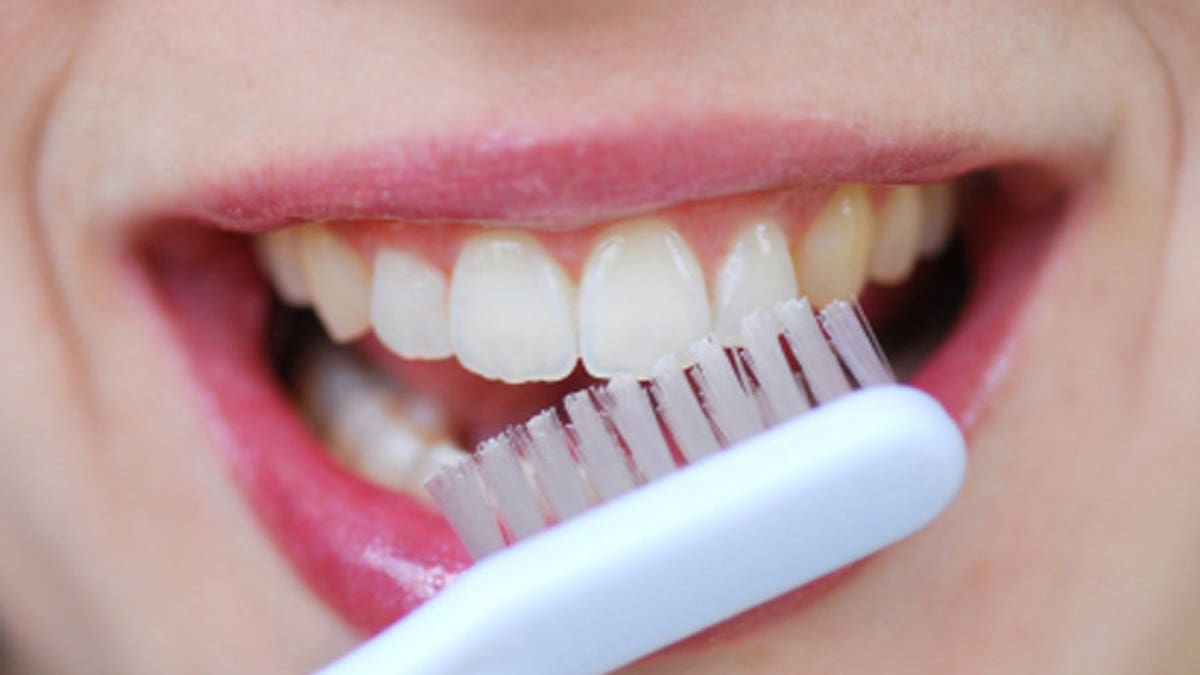
(iStock)
“Normal toothpaste has no impact on bacteria on the brush,” Curatola said.
And if you come across a toothpaste that advertises itself as ‘antibacterial’, leave it on the shelf, he said.
“Basically, our mouths have billions of healthy bacteria in [what is called] the oral microbiome. When the oral microbiome is healthy, we’re protected from deadly viruses and bacteria in the environment around us,” Curatola said. “But in a lot of people, [the oral microbiome] is not healthy because they use harmful products like detergent toothpaste or alcohol mouthwashes.”
5. Your toothpaste contains too many chemicals
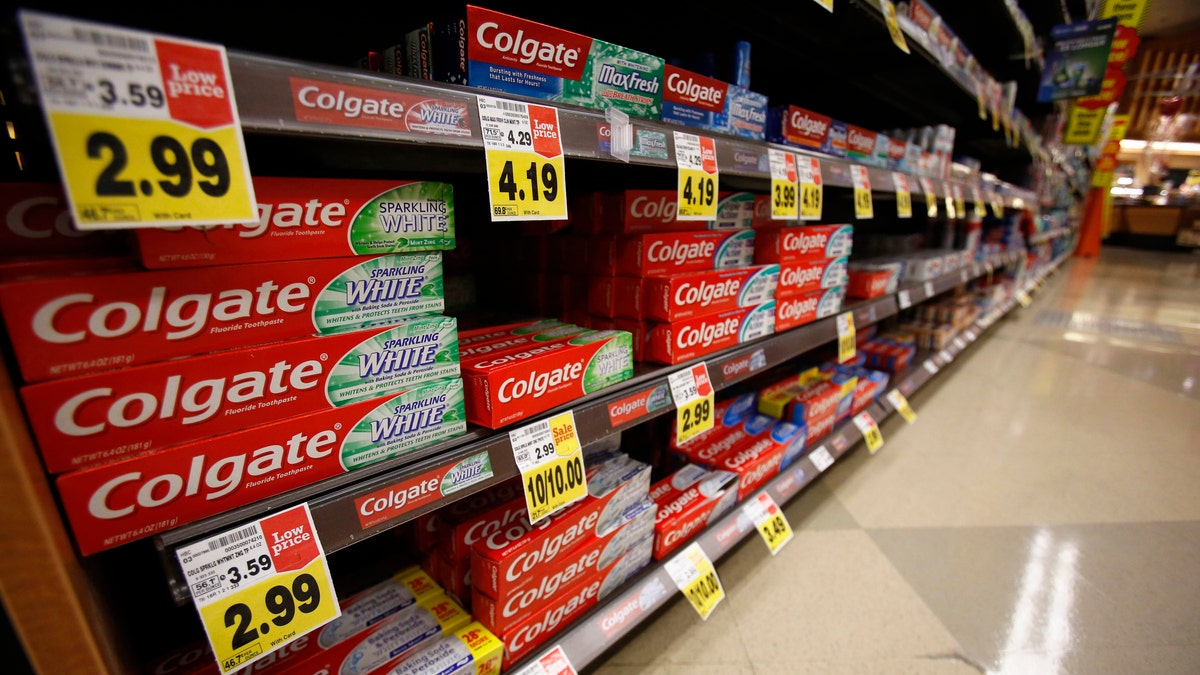
Colgate toothpaste is pictured on sale at a grocery store in Pasadena, California January 30, 2014. Colgate-Palmolive Co, the world's largest toothpaste maker, reported a better-than-expected quarterly profit as cost cuts offset the negative impact of a stronger dollar. Colgate's gross margins rose in the fourth quarter as it cut costs by negotiating better lease terms with suppliers, using cheaper raw material and reducing packaging material in products. REUTERS/Mario Anzuoni (UNITED STATES - Tags: BUSINESS) - RTX181QU (REUTERS/Mario Anzuoni)
Avoid toothpaste that contains chemicals like sodium laurel sulfate or triclosan copolymer, Curatola warns.
“Sodium laurel sulfate, which is an emulsifier, is a detergent and is actually irritating to the mouth,” Curatola said, noting that the chemical has been known to cause an increase in canker sores.
Furthermore, some experts are becoming concerned that exposure to triclosan, an antibacterial and antifungal agent, could be leading to increases in strains of resistant bacteria.
And remember, good oral health means good overall health, Curatola said.
“Oral disease is on the frontline of your ability to live a long healthy life,” he said. “It’s probably one of the biggest sources of inflammation in the whole body, and [ inflammation] reduces your ability to live a long, healthier life.”








































